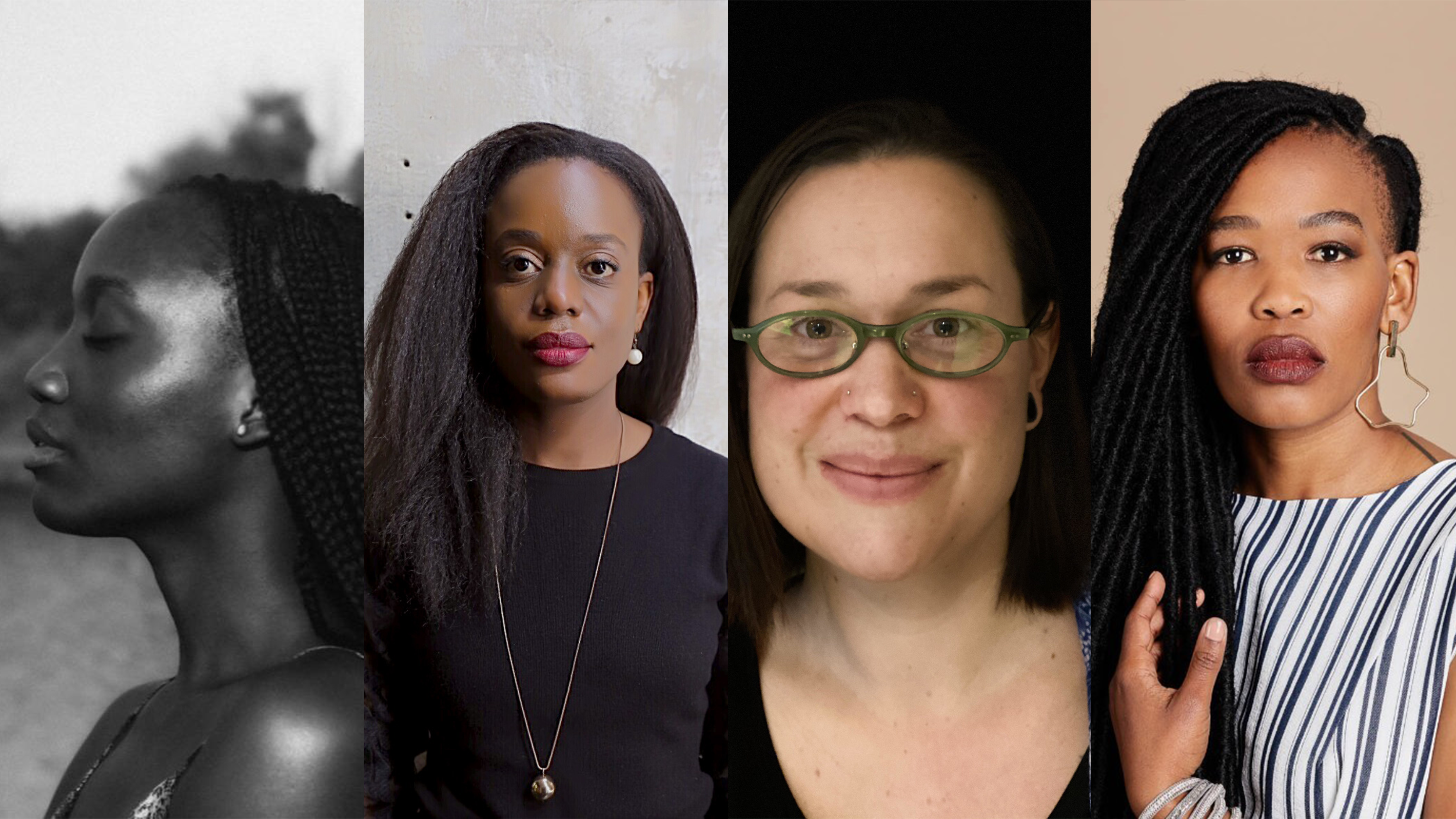
Our new bi-monthly interdisciplinary program on changemaking voices in artwork, books, films and other media. We’ll be talking about black feminism, queerness, violence, mermaids, struggle, post memory, heritage, myth busting, empowerment, and image making. In Footnotes we’ll connect countries and cultures, makers and theorists from interdisciplinary perspectives. Want to join us?
The kick off of these series is all about curating in the contemporary (South) African art scene. After a short video shot at the current exhibition History’s Footnote: on Love and Freedom, moderators Ethel Tawe and Martina Vitackova will speak with curators Khanyisile Mbongwa and Tandazani Dhlakama. An episode on (South) African contemporary art, curating from a sangoma’s perspective, the transformative role of art in societies, and more… As we always make sure of in our online programs, you will be able to join in the conversation in the live Q&A at the end, so safe the date and watch us live on November 16th!
Tandazani Dhlakama is assistant curator at Zeitz MOCAA in Cape Town since 2017. Before joining Zeitz MOCAA, she worked at the National Gallery of Zimbabwe (NGZ) in Harare where she held various roles between 2011 and 2017. Recently she held the position of Curator of Education and Public Programming. At the NGZ, Dhlakama was involved in curating several exhibitions including, Engaging with “the Other” (2013), Women at the Top (2014), and Dis(colour)ed Margins (2017). Current solo exhibitions in Zeitz MOCAA like Alfredo Jaar and Tracey Rose open dialogue around memory, history, power, blackness, femininity and justice. They give us unconventional methods of making meaning and continuing important dialogue, by creating work that speaks to the essence of who we are and how we can make the world a different place.
Khanyisile Mbongwa lives in Cape Town, is a sociologist, curator and (former) artist. With her interdisciplinary approach she unruffles complex themes such as social political, economic, racial and gender-queer subjects. She worked as an advisor for social development at the Cape Town Carnival, and curated the first Stellenbosch Triennale in 2020. Her current exhibition History’s Footnote: on Love and Freedom can be visited in Marres, Maastricht until 28 November 2021.
Martina Vitackova is an artist, and interdisciplinary feminist scholar in the fields of literature, gender studies and postcolonial theory. Her main research topic is postcolonial women’s writing and popular romance. Martina’s expertise lie in: feminist literary theory, postcolonialism, popular romance, feminism and post feminism, cultural analysis, Dutch and Afrikaans literature, migrant writers, women’s writers, female authorship, gender studies, intersectionality, representation and comparative research. She currently holds a position as guest professor at the Ghent University in Belgium.
Ethel Ruth Tawe (b. Yaoundé, Cameroon) is an image-maker, storyteller, and time-traveler based between Ghana and The Netherlands. She is a multidisciplinary artist exploring archives and identity in Africa and the diaspora. Her burgeoning curatorial practice took form in an inaugural exhibition titled ‘African Ancient Futures’, and continues to expand through a myriad of audiovisual experiments. She has written for ContemporaryAnd, Frieze, Quartz, Nataal, among others, including Africa 2.O Magazine where she is editorial director. Ethel’s work is currently on display in the Melkweg in Amsterdam, at the exposition Back In The Day Is Our Future. Manifesting resistance by celebrating the richness of black culture heritage.
About the series
Intersectionality has, in recent years, rapidly grown into a buzzword in cultural, academic and political debates across the world due to the ongoing need to foreground a much wider array of voices than was formerly the case. Voices that can speak to the often troubling ways in which the various intersections of race, gender, sexual or cultural inequalities in people’s lives wreak havoc for some, but not for others. As Desiree Lewis and Gabeda Baderoon argue in their introduction to Surfacing: On Being Black and Feminist in South Africa, mapping these interconnected power relations, so that they can be made visible and addressed, is no easy task. Especially not in an “age of advanced capitalized globalization”(Bogic qtd in Lewis and Baderoon), where some of the power structures in place have become so large and overbearing (like the imbrications of race and gender with market mechanisms), that situated perspectives tend to be drowned out by the boom of so called progress.It all started with And Wrote My Story Anyway : Black South African Women’s Novels as Feminism, Barbara Boswell’s book that Wits University Press published in 2020. The topics discussed in this book deserve more than a book review. Black feminism, and many other subjects on the broad grid of intersectionality deserve their own airing time. It was not hard to find inspired editors to join the bandwagon. We’re looking forward to create fascinating episodes together with (South) African makers and theorists. Follow our website and YouTube channel, to stay updated on the coming topics and guests in our new series!
Footnotes – Intersectional Strategies in (South) Africa, is a bi-monthly online program. To make the conversations accessible to people from multiple lingual backgrounds, these series will be produced in English.